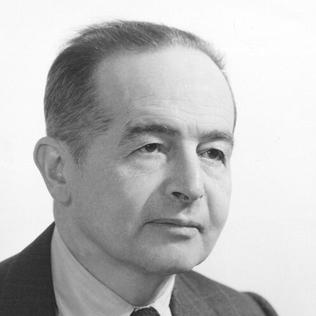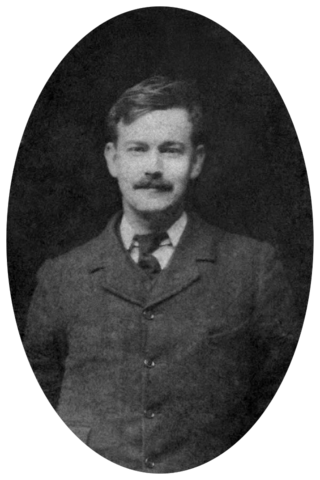Acmeism, or the Guild of Poets, was a modernist transient poetic school, which emerged circa 1911 in Russia under the leadership of Nikolay Gumilev and Sergei Gorodetsky. Their ideals were compactness of form and clarity of expression. The term was coined after the Greek word άκμη (ákmē), i.e., "the best age of man".

In fiction, a character is a person or other being in a narrative. The character may be entirely fictional or based on a real-life person, in which case the distinction of a "fictional" versus "real" character may be made. Derived from the Ancient Greek word χαρακτήρ, the English word dates from the Restoration, although it became widely used after its appearance in Tom Jones by Henry Fielding in 1749. From this, the sense of "a part played by an actor" developed. Character, particularly when enacted by an actor in the theatre or cinema, involves "the illusion of being a human person". In literature, characters guide readers through their stories, helping them to understand plots and ponder themes. Since the end of the 18th century, the phrase "in character" has been used to describe an effective impersonation by an actor. Since the 19th century, the art of creating characters, as practiced by actors or writers, has been called characterisation.
In logic and linguistics, a metalanguage is a language used to describe another language, often called the object language. Expressions in a metalanguage are often distinguished from those in the object language by the use of italics, quotation marks, or writing on a separate line. The structure of sentences and phrases in a metalanguage can be described by a metasyntax. For example, to say that the word "noun" can be used as a noun in a sentence, one could write "noun" is a <noun>.

Erich Auerbach was a German philologist and comparative scholar and critic of literature. His best-known work is Mimesis: The Representation of Reality in Western Literature, a history of representation in Western literature from ancient to modern times and frequently cited as a classic in the study of realism in literature. Along with Leo Spitzer, Auerbach is widely recognized as one of the foundational figures of comparative literature.

Terence Francis Eagleton is an English literary theorist, critic, and public intellectual. He is currently Distinguished Professor of English Literature at Lancaster University.
A plot twist is a literary technique that introduces a radical change in the direction or expected outcome of the plot in a work of fiction. When it happens near the end of a story, it is known as a twist or surprise ending. It may change the audience's perception of the preceding events, or introduce a new conflict that places it in a different context. A plot twist may be foreshadowed, to prepare the audience to accept it, but it usually comes with some element of surprise. There are a variety of methods used to execute a plot twist, such as withholding information from the audience, or misleading them with ambiguous or false information. Not every plot has a twist, but some have multiple lesser ones, and some are defined by a single major twist.

Richard Henry Tawney was an English economic historian, social critic, ethical socialist, Christian socialist, and important proponent of adult education. The Oxford Companion to British History (1997) explained that Tawney made a "significant impact" in these "interrelated roles". A. L. Rowse goes further by insisting that "Tawney exercised the widest influence of any historian of his time, politically, socially and, above all, educationally".
Jonathan Culler is an American literary critic. He was Class of 1916 Professor of English and Comparative Literature at Cornell University. His published works are in the fields of structuralism, literary theory and literary criticism.

Sir John Frank Kermode, FBA was a British literary critic best known for his 1967 work The Sense of an Ending: Studies in the Theory of Fiction and for his extensive book-reviewing and editing.
In rhetoric, a climax is a figure of speech in which words, phrases, or clauses are arranged in order of increasing importance. In its use with clauses, it is also sometimes known as auxesis (lit. "growth").
Queenie Dorothy Leavis was an English literary critic and essayist.
Parnassianism was a group of French poets that began during the positivist period of the 19th century (1860s–1890s), occurring after romanticism and prior to symbolism. The style was influenced by the author Théophile Gautier as well as by the philosophical ideas of Arthur Schopenhauer.

This glossary of literary terms is a list of definitions of terms and concepts used in the discussion, classification, analysis, and criticism of all types of literature, such as poetry, novels, and picture books, as well as of grammar, syntax, and language techniques. For a more complete glossary of terms relating to poetry in particular, see Glossary of poetry terms.
In literature, the tone of a literary work expresses the writer's attitude toward or feelings about the subject matter and audience.
George Michael Sinclair Kennedy CBE was an English music critic and author who specialized in classical music. For nearly two decades he was the chief classical music critic for both The Daily Telegraph (1986–2005) and The Sunday Telegraph (1989–2005). A prolific writer, he was the biographer of many composers and musicians, including Vaughan Williams, Elgar, Barbirolli, Mahler, Strauss, Britten, Boult and Walton. Other notable publications include writings on various musical institutions, the editing of music dictionaries as well as numerous articles for The New Grove Dictionary of Music and Musicians and the subsequent Grove Music Online.
Andrew John Milner is Professor Emeritus of English and Comparative Literature at Monash University. From 2014 until 2019 he was also Honorary Professor of English and Comparative Literary Studies at the University of Warwick. In 2013 he was Ludwig Hirschfeld Mack Visiting Professor of Australian Studies at the Institut für Englische Philologie, Freie Universität Berlin.
Myth is a folklore genre consisting of narratives that play a fundamental role in a society, such as foundational tales or origin myths. Since "myth" is popularly used to describe stories that are not objectively true, the identification of a narrative as a myth can be highly controversial. Many religious adherents believe that the narratives told in their respective religious traditions are historical without question, and so object to their identification as myths while labelling traditional narratives from other religions as such. Hence, some scholars may label all religious narratives as "myths" for practical reasons, such as to avoid depreciating any one tradition because cultures interpret each other differently relative to one another. Other scholars may abstain from using the term "myth" altogether for purposes of avoiding placing pejorative overtones on sacred narratives.
Katy Deepwell is a feminist art critic and academic, based in London. She is the founder and editor of n.paradoxa: international feminist art journal, published 1998-2017, in 40 volumes by KT press. She founded KT press as a feminist not-for-profit publishing company to publish the journal and books on feminist art. KT press has published 8 e-books, supported by the Andy Warhol Foundation for the Visual Arts. In Feb 2017, Katy Deepwell wrote and published a MOOC on feminism and contemporary art at. In May 2020, a second advanced course on feminist art manifestos was added to the site. The model for both MOOCs is FemTechNet’s DOCC: Distributed Open Collaborative Course.
The Great Writers series was a collection of literary biographies published in London from 1887, by Walter Scott & Co. The founding editor was Eric Sutherland Robertson, followed by Frank T. Marzials.





